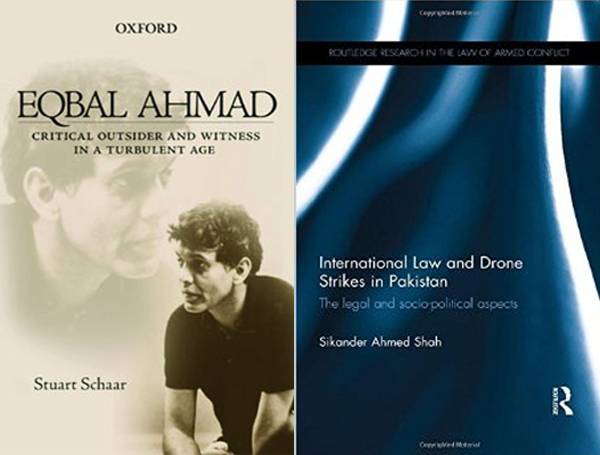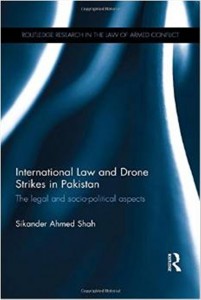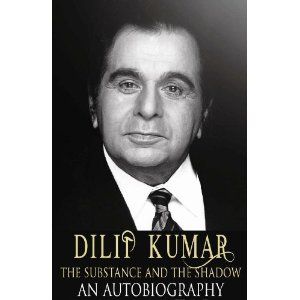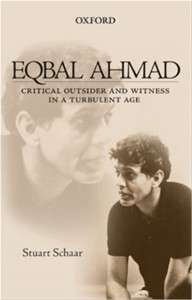
International Law and Drone Strikes in Pakistan: The Legal and Socio-Political Aspects

Sikander Ahmed Shah
Routledge [hardback], 2015
PRs 16,030
While conventional warfare has an established body of legal precedence, the legality of drone strikes by the United States in Pakistan and elsewhere remains ambiguous. This book explores the legal and political issues surrounding the use of drones in Pakistan. Drawing from international treaty law, customary international law, and statistical data on the impact of the strikes, Sikander Ahmed Shah asks whether drone strikes by the US in Pakistan are in compliance with international humanitarian law. The book questions how international law views the giving of consent between states for military action, and explores what this means for the interaction between sovereignty and consent.
The book goes on to look at the socio-political realities of drone strikes in Pakistan, scrutinizing the impact of drone strikes on both Pakistani politics and US-Pakistan relationships. Topics include the Pakistan army–government relationship, the evolution of international institutions as a result of drone strikes and the geopolitical dynamics affecting the region.
As a detailed and critical examination of the legal and political challenges presented by drone strikes, this book will be essential to scholars and students of the law of armed conflict, security studies, political science and international relations.
What people are saying: “This is an important book. As well as evaluating the illegality of the use of drones in Pakistan, Shah highlights the dangers of facilitating military intervention without consequences, whilst also bringing to the forefront the forgotten voices in this debate, the victims – whose voices have only recently been heard through improved political interest and strategic litigation” (Clive Stafford Smith, director, Reprieve).
Dilip Kumar – The Substance and the Shadow: An Autobiography

Dilip Kumar
Hay House [hardback], 2014
PRs 1,045
An authentic, heartfelt narrative – straight from the horse’s mouth – that reveals for the first time unknown aspects of the life and times of one of the greatest legends of Indian cinema. Dilip Kumar (born Yousuf Khan) began as a diffident novice in Hindi cinema in the early 1940s and went on to attain stardom within a short time. He came up with spellbinding performances in one hit film after another – in his almost six-decade-long career – on the basis of his innovative capability, determination, hard work and never-say-die attitude.
In this compelling autobiography, Kumar candidly recounts his interaction and relationships with a wide variety of people, not only from his family and the film fraternity, but also from other walks of life, including politicians. Seeking to set the record straight, he narrates how he married Saira Bano and describes his life-changing meeting with Devika Rani, the head of Bombay Talkies, when she offered him an acting job.
His first film was Jwar Bhata (1944). Kumar explains how he had to learn everything from scratch and develop his own distinct style. After that, he soon soared to great heights with movies such as Jugnu, Shaheed, Mela Andaz, Deedar, Daag and Devdas. In these movies, he played the tragedian with such intensity that his psyche was adversely affected. He consulted a British psychiatrist who advised him to switch over to comedy. The result was spectacular performances in laugh riots such as Azaad and Kohinoor, apart from a scintillating portrayal as a gritty tonga driver in Naya Daur. After a five-year break, he began a second innings with Kranti (1981), after which he appeared in a series of hits such as Vidhaata, Shakti, Mashaal, Karma, Saudagar and Qila.
What people are saying: “No book on Hindi cinema has ever been as keenly anticipated as this one. That is understandable. The Substance and the Shadow is after all the autobiography of the one and only Dilip Kumar” (Zafar Anjum, Kitaab).
Eqbal Ahmad: Critical Outsider and Witness in a Turbulent Age

Stuart Schaar
Oxford University Press [hardback], 2015
PRs 925
Eqbal Ahmad saw the future without a crystal ball. He read and travelled widely, met great minds involved in international affairs, novelists, poets and journalists. A former anti-Vietnam War activist in the USA he was indicted in 1971 with others for conspiracy to kidnap National Security Advisor Henry Kissinger. After a jury threw the case out, he became a major critic of US foreign policy. As a critical outsider, he argued that the Cold War did not define the post-1945 world. Rather, Africans, Asians, and Latin Americans caught in proxy wars for the great powers faced constant upheaval and subversion. The defining forces were revolution and counterinsurgency.
As a bold and original activist, journalist, and theorist, he brought uncommon perspective to the rise of militant Islam, the conflict in Kashmir, the involvement of the United States in Vietnam and the geopolitics of the Cold War. A long-time friend and intellectual collaborator of Ahmad, Stuart Schaar presents in this book previously unseen materials by and about his colleague, having traveled through the United States, India, Pakistan, western Europe, and North Africa to connect Ahmad’s experiences to the major currents of modern history.
Ahmad was the first to recognize that former ally Osama bin Laden would turn against the United States. He anticipated the rapidly shifting loyalties of terrorists and understood that overthrowing Saddam Hussein would provoke violence and sectarian strife in Iraq. Ahmad frequently championed unpopular causes, such as the need to extend the rights of Palestinians and protect Bosnians and Kosovars in a disintegrating Yugoslavia. Toward the end of his life, he worked tirelessly to broker a peace between India and Pakistan and to prevent the spread of nuclear weapons throughout the subcontinent. As novel and necessary as ever, Ahmad’s remarkable vision is here preserved and extended to reveal the extent to which he was involved in the political and historical conflicts of his time.
What people are saying: “His accomplishments ranged from demolishing self-serving dogmas about the Cold War to such constructive work as bringing Indians and Pakistanis together in a search for an amicable settlement of a tragic conflict, and far too much more even to try to mention. His life, achievements, and legacy are vividly portrayed by his close friend Stuart Schaar in this outstanding study, a fine tribute to one of the most remarkable people I’ve been fortunate enough to know, or even to know about” (Noam Chomsky).

